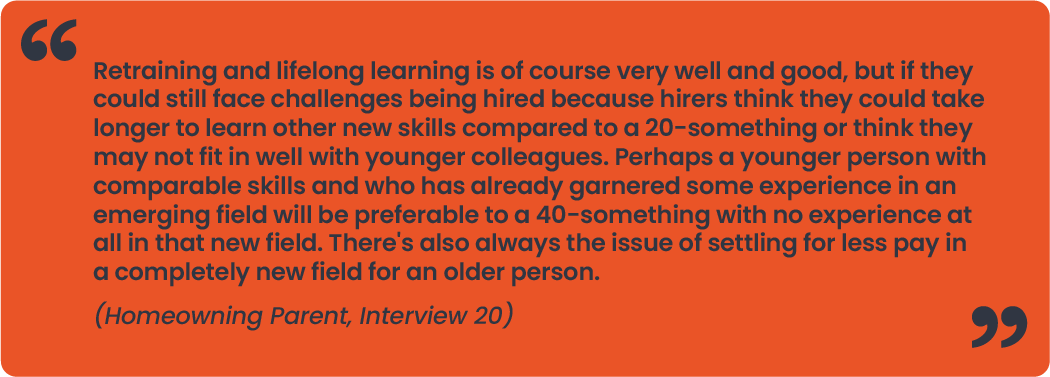The Next Chapter for SkillsFuture: Budget 2024’s Attempt to Redefine Skills Development
On February 16, 2024, Deputy Prime Minister Lawrence Wong unveiled the Singapore Budget 2024, placing significant emphasis on the SkillsFuture initiative. Since its inception in 2015, the SkillsFuture initiative has aimed to foster lifelong learning and enhance employability in the face of rapid technological changes. Participation rates have risen steadily, reaching about 50% in 2022, with approximately 560,000 individuals engaged in SkillsFuture-supported programs, including 192,000 utilising their SkillsFuture credits.
However, critics of Singapore’s SkillsFuture initiatives point out key issues: the perceived inadequacy of the initial S$500 credit to cover course expenses; criticism regarding the limited flexibility in course eligibility, potentially overlooking essential skills; identified barriers such as lacking employer support and individual motivation hindering program utilization; and concerns that the focus on hard skills may neglect the development of soft skills and cross-job competencies.
This is why the focus on enhancing SkillsFuture has become one of the top talking points of Budget 2024. With the ever-evolving global landscape and technological advancements, equipping Singapore’s workforce with relevant skills has become paramount. We already did a deep dive into Singaporeans’ perceptions around Budget 2024 with our comprehensive report, so in this piece we focus our lens on the announced SkillsFuture initiatives, analysing their potential impact and exploring what lies ahead.
Empowering Mid-Career Professionals: A S$4,000 boost
The headline announcement was a S$4,000 SkillsFuture Credit top-up for all Singaporeans aged 40 and above. This bold move aims to motivate mid-career professionals to embrace upskilling and remain competitive in today’s dynamic job market. Layered atop the existing S$500 credit, this substantial financial injection serves as a compelling incentive for individuals to stay invested in their learning journeys. However, a perspective from one of the experts we interviewed in our report identifies a missed opportunity:
Investing in Knowledge Capital: Subsidies for Formal Education
Recognising the need for deeper skills development, Budget 2024 introduces subsidies for mid-career workers pursuing full-time diplomas at polytechnics, Institutes of Technical Education (ITE), and arts institutions. This initiative addresses the growing demand for specialised skills and qualifications, potentially leading to career advancement and increased employability. While this move has been largely welcome, differing perspectives exist here too. As one of the interviewees in our report remarked:
Fostering Employer Participation: Enhanced Co-funding
While individual initiative is crucial, employer support is equally important. The budget offers enhanced co-funding for employer-sponsored training, making it more attractive for companies to invest in their employees’ upskilling. This fosters a collaborative approach to workforce development, benefiting both businesses and individuals. Moreover, recognising the importance of future-proof skillsets, Budget 2024 targets specific industries with dedicated training programs. These include Artificial Intelligence (AI), cybersecurity, and green technology, aligning Singapore’s workforce with the demands of the growing digital economy and sustainability efforts.
Beyond Technical Skills: Embracing Soft Skills
Recognising the evolving holistic needs of the workforce, Budget 2024 expands SkillsFuture to include soft skills development. Programs covering communication, leadership, and critical thinking will be encouraged, fostering well-rounded professionals adaptable to dynamic work environments. Soft skills are even more relevant today where work from home has led to lesser interactions within teams. In fact, a study conducted in collaboration between United Women Singapore (UWS) and Blackbox Research showed that over 9 in 10 hiring managers are looking for candidates with skills such as problem-solving, communication, collaboration, adaptability, and critical thinking. But of course, training in the core skills that makes one proficient in their role and the industry’s contribution in making this happen will remain the most critical factors. As one of the interviewees in our Budget report puts it:
Challenges and Opportunities
While these initiatives are promising, challenges remain. Matching skills with available jobs will be crucial, ensuring training programs align with industry needs and job market trends. Additionally, ensuring accessibility and inclusivity for diverse demographics, including low-skilled workers and those facing economic hardship, is vital.
Winning the confidence of the youth is vital too, who at the moment remain sceptical. Our recent research showed that sentiment among the “Young and Free” demographic (unmarried and child-free individuals aged 20-35) regarding Budget 2024 is mixed, tending toward dissatisfaction. This group feels somewhat neglected, perceiving that the Budget fails to address their unique needs, particularly regarding upskilling and economic opportunities. While they acknowledge certain positive aspects such as investments in technology and environmental initiatives, concerns persist regarding inclusivity, the relevance of specific programs, and the effects of housing affordability and cost of living measures, dampening their overall outlook. Questions arise regarding the suitability and effectiveness of SkillsFuture credits and whether the benefits justify their investment, particularly in light of evolving job market demands and applicable skills.
Looking Ahead
Budget 2024’s SkillsFuture announcements mark a significant step towards a future-proof workforce, especially with some course correction of its scope this time around. However, the journey is ongoing. Continuous monitoring, evaluation, and adaptation of programs will be necessary to ensure their effectiveness and relevance. Building robust partnerships between government, industries, and educational institutions will be crucial for success.
Rounding off, Singapore’s Budget 2024 takes a bold step towards empowering its workforce through focused SkillsFuture initiatives. While challenges exist, the potential for positive impact is undeniable. As Singapore strives to maintain its competitive edge in the global economy, investing in its people’s skills remains the cornerstone of its success.
Don’t miss a beat. Click the icon to follow Blackbox on LinkedIn, and fill out the form below to sign up to our newsletter or send us a message.




